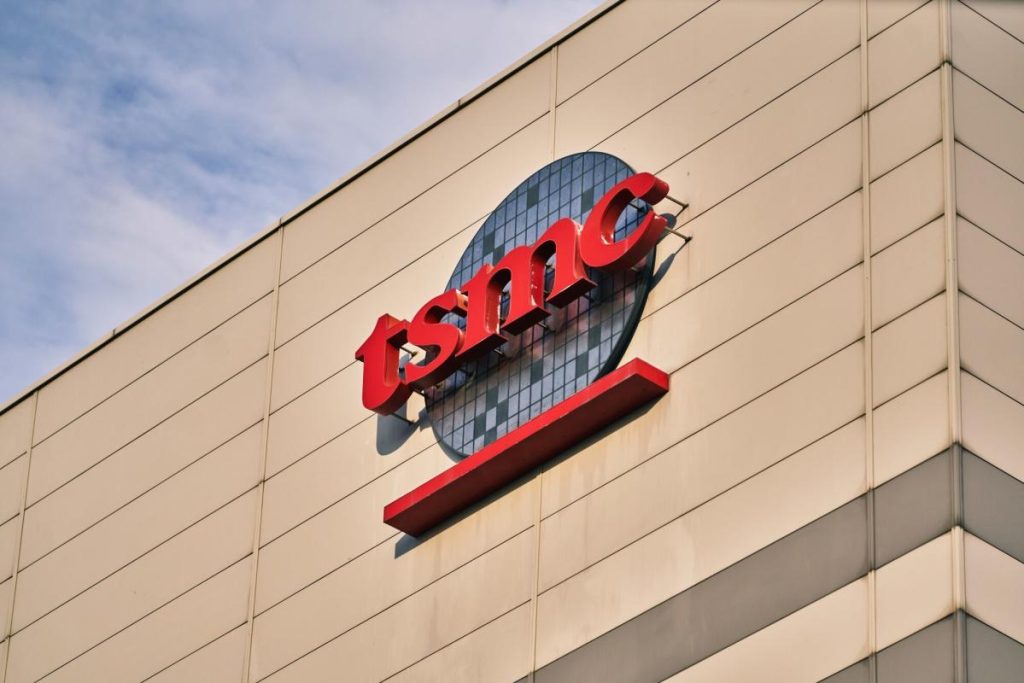(Bloomberg) — Taiwan Semiconductor Manufacturing Co. raised its 2024 revenue growth forecast after reporting better-than-expected quarterly results, reflecting confidence that a global boom in AI spending will last.
Most read articles on Bloomberg
TSMC, which makes chips for Apple and Nvidia, now sees revenue growth above its previous forecast of a mid-20% range and now sees current-quarter sales of $23.2 billion, beating analyst expectations, and lowered its capital spending forecast to the high end of its guidance of $30 billion to $32 billion from a low of $28 billion previously.
The revision underscores TSMC’s view that AI spending will remain high despite escalating trade tensions between the U.S. and China, where startups and tech companies from Microsoft Corp. to Baidu Inc. are investing heavily in AI infrastructure, mostly powered by Nvidia accelerators. TSMC’s U.S.-listed shares rose more than 3.6% in premarket trading.
Market expectations had been building in the weeks leading up to TSMC’s report. The overall smartphone market, another big driver for Taiwan’s largest company, is on the path to recovery. Apple gave suppliers positive guidance for shipments of the next iPhone 16, based on the potential strength of new AI services. This led TSMC to report a better-than-expected 36% increase in June-quarter profit.
“This time around, AI demand is more real than it was two or three years ago,” TSMC Chief Executive Officer CC Wei said in an earnings call on Thursday. The company is ramping up production capacity to find the right balance. “Supply will remain very tight through 2025.”
Click here for a live blog on the numbers.
The company reported second-quarter sales grew at its fastest pace since 2022, and net profit rose to NT$247.8 billion ($7.6 billion). High-performance computing, centered on AI, accounted for 52% of TSMC’s revenue, the first time it has accounted for more than half of its sales.
The world’s largest advanced chipmaker is one of the beneficiaries of the global race to secure the semiconductors that power artificial intelligence (AI). The company’s shares have more than doubled since the debut of OpenAI’s ChatGPT in late 2022, hitting one all-time high after another, with the company’s market capitalization briefly surpassing the $1 trillion mark.
“Demand is so high that we have to work hard to meet customer demand,” Wei said. TSMC has been testing customers’ chips and found that the machine learning they enable can help its own companies be more productive, but it also has to queue up to buy scarce AI products, Wei said.
Wei said the company is likely to hit its gross margin target of more than 53 percent. “My customers are doing well, so we should do well,” he said.
What Bloomberg Intelligence Says
ASML’s 23.7% Q2 order growth suggests that TSMC’s N2 development is progressing smoothly and capacity ramp-up may accelerate. TSMC plans to begin mass production in Hsinchu, Taiwan in the second half of 2025 with monthly capacity of approximately 30,000 wafers. We believe pricing for the company’s N2 process will be at least 15% higher than N3.
— Charles Shum, BI Analyst
Investors have become less excited about TSMC’s prospects since Bloomberg Businessweek reported that Republican presidential candidate Donald Trump said the U.S. government would offer at best a half-hearted response to defend Taiwan if China invades the island.
Meanwhile, Bloomberg News reported that the Biden administration is considering imposing the toughest trade restrictions on some suppliers to Chinese semiconductor companies, triggering a sell-off in global tech stocks as investors worried about the impact on the world’s largest semiconductor industry.
Wariness about AI is brewing on the fringes of the market: This month, Goldman Sachs warned that the largest US technology companies may be investing too much in it.
With revenue growth slowing for many of the world’s largest tech companies, investors will be paying close attention to how companies such as utilities and data centers are capitalizing on AI and whether those investments will translate into profits and boost stock valuations.
“AI trading is coming under increasing scrutiny,” Goldman Sachs strategists Ryan Hammond and David Kostin said in a note this week.
–With assistance from Vlad Savov, Cindy Wang, Edwin Chan, and Liau Y-Sing.
(Adds executive and analyst comments from the fifth paragraph)
Most read articles on Bloomberg Businessweek
©2024 Bloomberg LP


